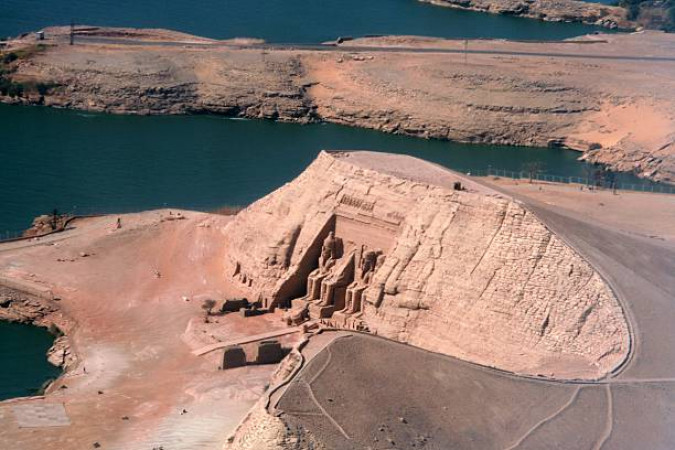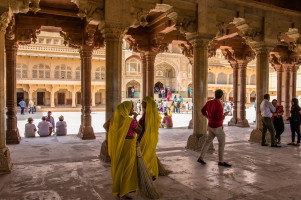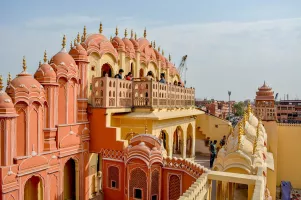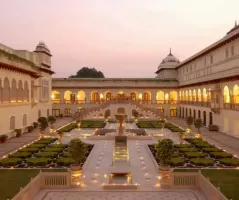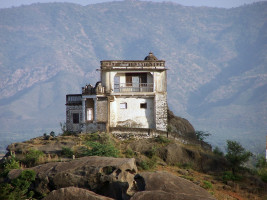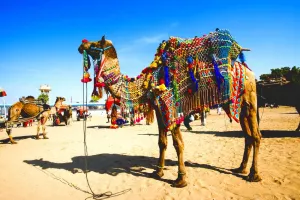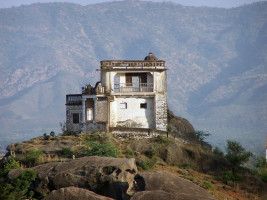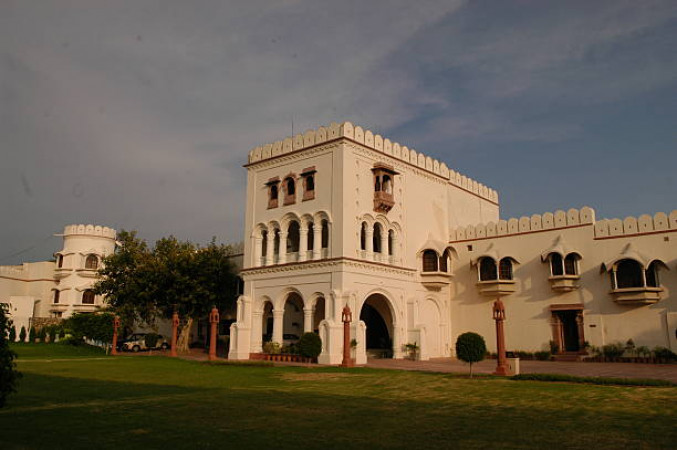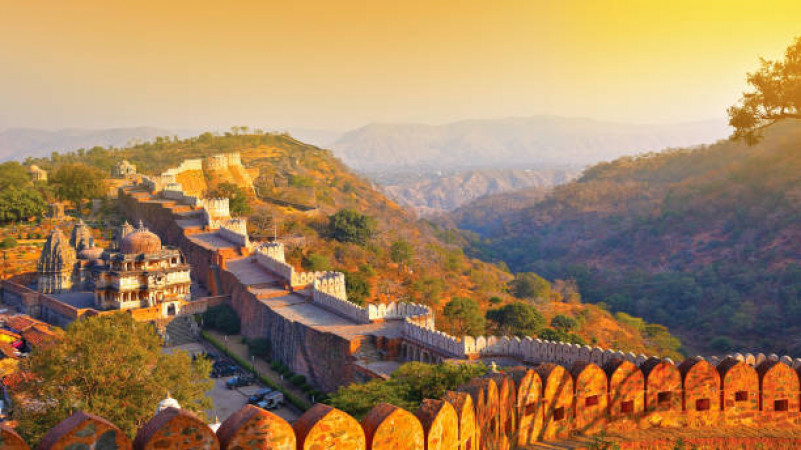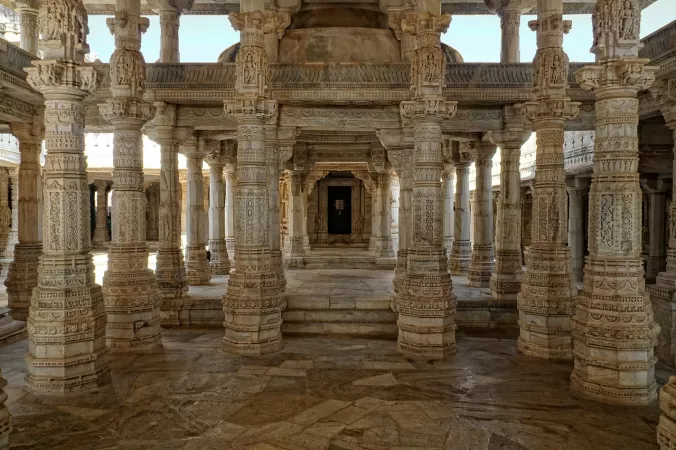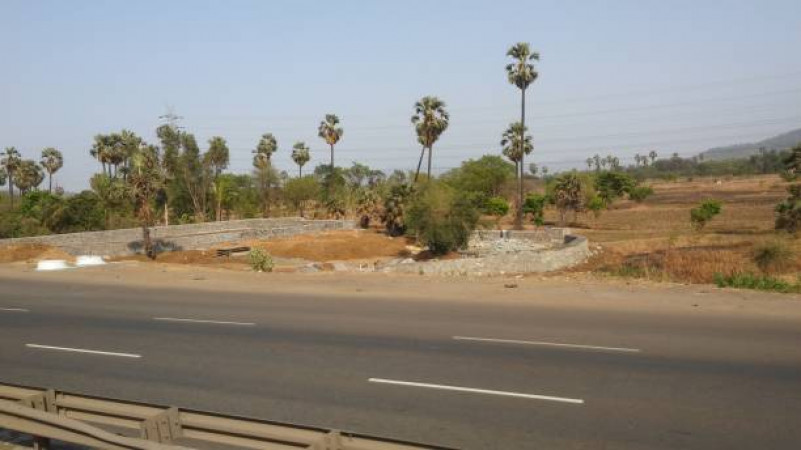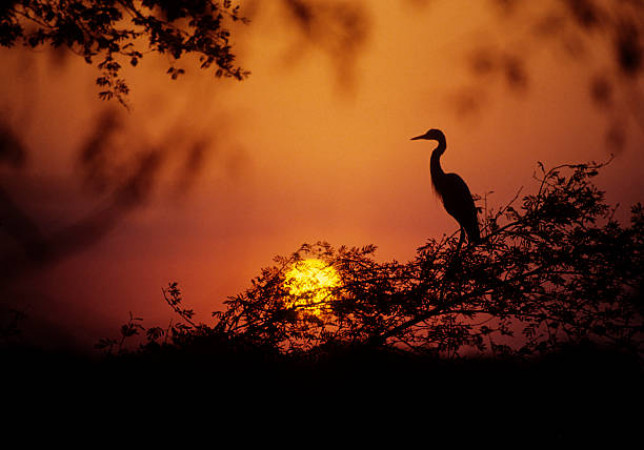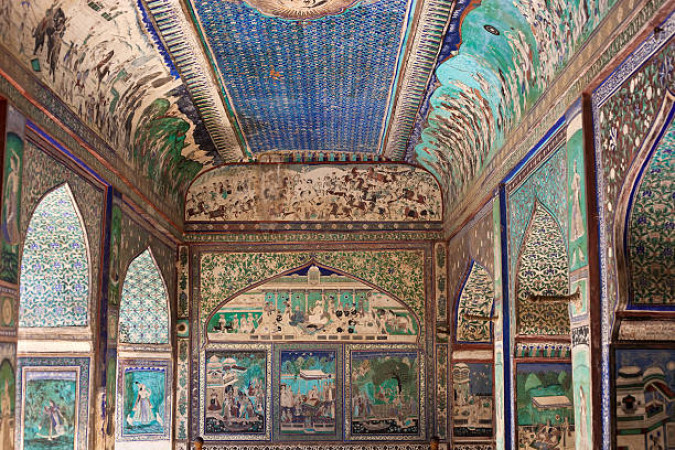Mount Abu Travel Guide
Mount Abu, the only hill station in the desert state of Rajasthan, India, is a picturesque oasis nestled in the Aravalli Range. Known for its cool climate, serene lakes, and lush greenery, Mount Abu offers a refreshing escape from the scorching heat of the surrounding region. The town is also steeped in history, with ancient temples and forts dotting the landscape, making it a popular destination for both nature lovers and history enthusiasts.Top Attractions in Mount Abu
- Dilwara Jain Temples
- Nakki Lake
- Guru Shikhar
- Toad Rock
- Achalgarh Fort
Mount Abu is Famous for
Its serene lakes, lush greenery, and the stunning Dilwara Jain Temples.Top Attractions in Mount Abu
- Boating in Nakki Lake
- Exploring the intricate marble carvings at Dilwara Jain Temples
- Trekking to Guru Shikhar for panoramic views
- Rock climbing at Toad Rock
- Visiting the historic Achalgarh Fort
What's Great about Travelling to Mount Abu?
- The cool climate makes it a perfect summer getaway
- Perfect for nature lovers and adventure enthusiasts
- Rich historical and cultural heritage
What's Not So Great about Travelling to Mount Abu?
- Limited nightlife and shopping options
- Can get crowded during peak tourist seasons
- Not ideal for those seeking a bustling city experience
Travel Tips for Mount Abu
- Carry warm clothing even in summers due to cool evenings
- Book accommodation in advance, especially during peak seasons
- Respect the local customs and traditions while visiting temples
Important Mount Abu trip information
- Ideal Duration: 2-3 days
- Best Time to Visit: March to June and September to December
- Nearby Airports and Railway Stations: The nearest airport is in Udaipur (185 km) and Abu Road is the nearest railway station (28 km)
Top 9 Places to visit in Mount Abu
Per Person
28,964
*EXCLUDING APPLICABLE TAXES Per Person
33,000
*EXCLUDING APPLICABLE TAXES 5.0 Ratings
( 108 Reviews )
( 108 Reviews )
Per Person
25,500
*EXCLUDING APPLICABLE TAXES 4.1 Ratings
( 56 Reviews )
( 56 Reviews )
Per Person
16,200
*EXCLUDING APPLICABLE TAXES Per Person
31,000
*EXCLUDING APPLICABLE TAXES 5.0 Ratings
( 108 Reviews )
( 108 Reviews )
Per Person
10,800
*EXCLUDING APPLICABLE TAXES FAQ's on Mount Abu
Q1: What is the best time to visit Mount Abu?
The best time to visit Mount Abu is from November to March when the weather is pleasant for sightseeing and outdoor activities. This period also coincides with the famous Winter Festival in December which showcases the local culture and traditions.
Q2: Do I need a visa to travel to Mount Abu?
As Mount Abu is located in India, tourists will need a valid Indian visa to travel there. Make sure to check the visa requirements based on your nationality and plan accordingly. Some nationalities may be eligible for e-Visas or visa on arrival.
Q3: What are the must-visit attractions in Mount Abu?
Some of the must-visit attractions in Mount Abu include the Dilwara Temples known for their intricate marble carvings, Nakki Lake offering boating experiences, Guru Shikhar for panoramic views, and the Mount Abu Wildlife Sanctuary for nature lovers.
Q4: Is Mount Abu a safe place to travel?
Mount Abu is generally considered a safe destination for tourists. However, like any place, it is advisable to be cautious and aware of your surroundings. Avoid isolated areas at night and take necessary precautions to safeguard your belongings.
Q5: What is the local currency in Mount Abu and can I use credit cards?
The local currency in Mount Abu is the Indian Rupee (INR). While ATMs are available in the town, it's recommended to carry cash for smaller establishments. Credit cards are accepted in some hotels and larger stores, but it's advisable to have cash on hand.
Q6: What is the local cuisine like in Mount Abu?
Mount Abu offers a mix of Rajasthani and Gujarati cuisine. Don't miss trying dishes like Daal Baati Churma, Gatte ki Sabzi, and Ker Sangri. For those with a sweet tooth, try the famous sweets like Ghevar and Malpua. Vegetarian options are prevalent due to cultural and religious influences.
Q7: What transportation options are available in Mount Abu?
Transportation options in Mount Abu include taxis, auto-rickshaws, and local buses for getting around the town and nearby attractions. Renting a car or hiring a guide for a day can be convenient for exploring the area. Walking is also a popular option for short distances.
Q8: Are there any cultural norms or etiquette I should be aware of when visiting Mount Abu?
When visiting Mount Abu, it's important to respect local customs such as removing your shoes before entering temples, dressing modestly, and avoiding public displays of affection. Greeting locals with a "Namaste" is appreciated, and it's customary to ask for permission before taking photographs of people.
Q9: I am a travel agent. How can I buy travel leads of Mount Abu?
Register yourself as a travel agent at agents.tripclap.com and then you can buy travel leads to Mount Abu once your account is approved. For more details contact our support team at +91-8069186564 or support@tripclap.com
